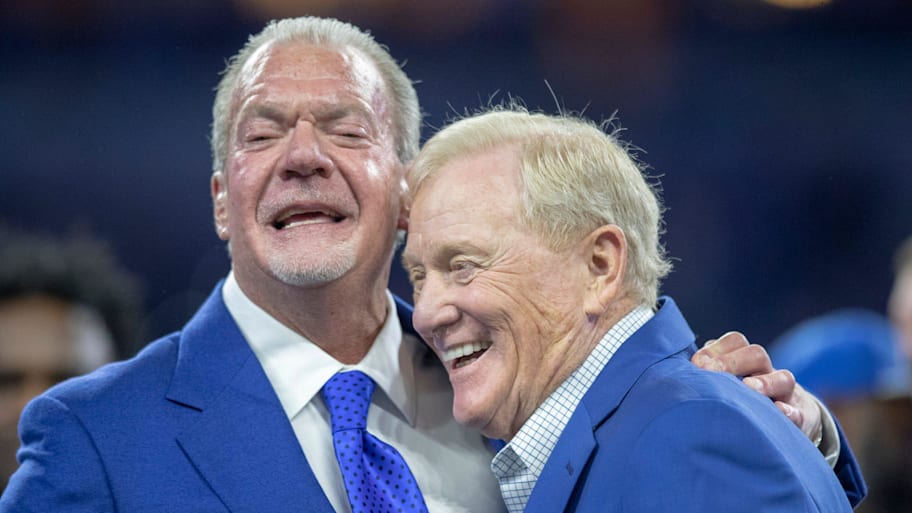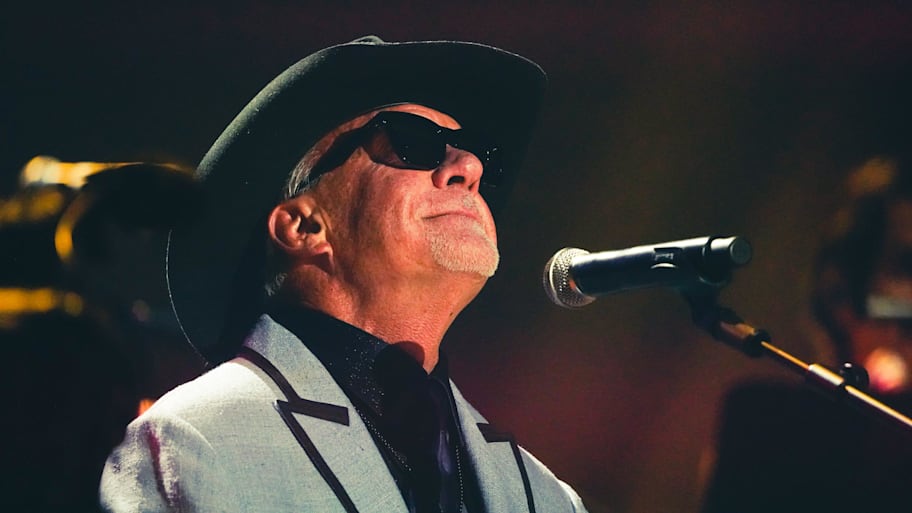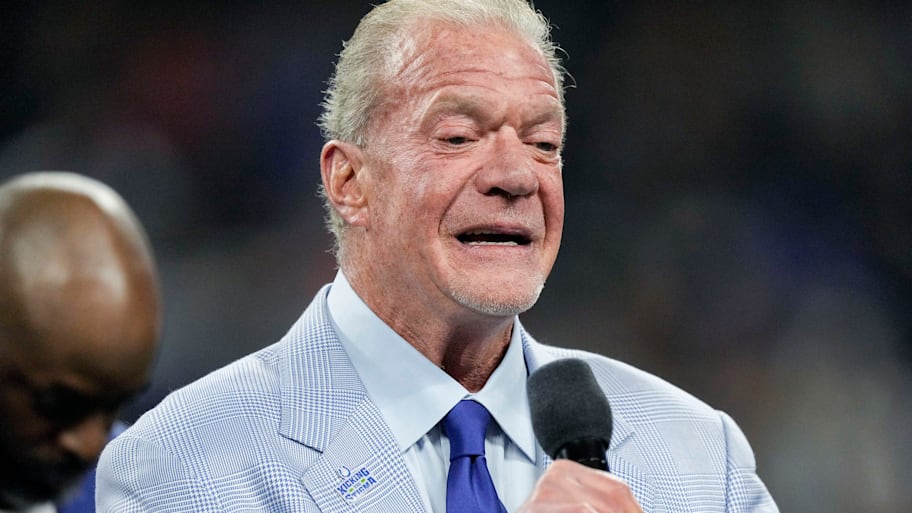A couple of years ago, with a little bit of effort, I connected Indianapolis Colts owner Jim Irsay with the morning sports radio show I’ve done for 15 years. Rich Shertenlieb and Fred Toucher had asked me if I could get Irsay on, and after I explained to him what their show was, and how it’d allow him to tell stories and talk about his passions, he was all in.
For almost an hour that June, Irsay told stories about his love for classic rock, his celebrity encounters, and long nights in which he lived hard. Over that time, it was obvious that Irsay went from someone whom the hosts would poke fun at to someone they genuinely liked.
That was a common theme for Irsay.
Yes, he had his demons. Those stories he gave the show about hard living were hardly isolated incidents. But deep down, underneath all of that, was a genuinely good-hearted person who wanted what was best for everyone around him. And if you got to be around him for even a little bit, that was as identifiable as the horseshoe on his team’s helmets.
Irsay died in his sleep Wednesday afternoon, according to a team-issued announcement. He was 65, and is survived by his three children and 10 grandchildren.
His football story is, to be sure, an interesting one. If his late father, Bob, was best known for stealing the Colts away from Baltimore in the middle of the night in 1984, Jim’s stewardship should be remembered for how his Colts really cemented themselves in the Heartland.
Jim was named the NFL’s youngest GM ahead of the Colts’ first year in Indianapolis, and he took day-to-day control of the team after his dad had a stroke in 1995. Two years later, when his father passed away, he became the primary owner. In his early years in charge, the Colts’ identity in their new home was solidified.
In 1995, Jim Harbaugh was dubbed Captain Comeback, and the Colts made it to the AFC title game for the first time in 24 years. Three years after that, and after the team bottomed out in ’97, Irsay hired GM Bill Polian and drafted Peyton Manning to set in motion the franchise’s greatest era. Over a 12-year period, from 1999 to 2010, Indy made the playoffs 11 times, won eight division titles, two conference titles and Super Bowl XLI.

The franchise then transitioned, after Manning sustained a career-altering neck injury, to Andrew Luck in 2012, progressing one round further in the playoffs in each of Luck’s first three years. Luck’s injury issues changed things thereafter, and the Colts haven’t been able to recapture the glory experienced during Jim Irsay’s first two decades in charge.
But there was never any question about where his heart was. If you talked to the people that worked for him, they would tell you they had his unending support. While he wanted to win, and had a real football background, he gave the people he put in charge space to do their jobs, and any resource he could muster to assist them in that effort. He could recognize his mistakes—hiring Jeff Saturday as head coach on the fly in 2022 was one—and would try to correct them. He appreciated the rank and file just like he did the folks he gave the hammer.
Absent a quarterback such as Manning or Luck, success was harder to come by. However, his desire to do best by the franchise he inherited never waned.
Over his 30 years in charge, his Colts did the impossible—turning the Hoosier state into a football hotbed. Kids were named Peyton and local high school quarterbacks wore No. 18. The best athlete in a rural Indiana town didn’t necessarily dream of becoming the next Larry Bird anymore, and that was reflected in the football talent coming out of the state.
All the while, the Colts found a way to stick in their middle-sized market, building Lucas Oil Stadium in the aughts, and amplified its sports importance by keeping the combine and attracting a Super Bowl.
That happened, in large part, because Irsay loved Indy like he loved his family and his team.

As for that radio appearance? Irsay and the guys hit it off to the point where the Colts’ owner invited them to be backstage at his concert and showcase for the Jim Irsay Collection that July at TD Garden in Boston. In the middle of the show, he brought Rich out.
It didn’t surprise me at all, of course. Over the years, I’d seen how he’d connected with players and coaches and front-office people, and how loyal even those he’d fired were to him. His decision-making toward the end got erratic—again, dumping Frank Reich for Saturday would be an example—but no one could question his intentions. As much as he wanted success for himself, he wanted it for those around him, and he wanted, in the process, to have real relationships with those people.
Everyone who was around him in recent years saw a visible decline in his health. But that never seemed to break his spirit or passion. He connected with some people by showing them his Super Bowl ring, others the guitar he got from Jerry Garcia that hung in his office. He spoke with passion and purpose when Washington owner Dan Snyder was dragging the league and sport’s reputation through the mud, with other owners afraid to say something.
He was flawed, but he was an original.
And if you got to spend just a little time around him, you came to love that uniqueness, quirkiness and even weirdness about him. Even if you never thought you would.
More NFL on Sports Illustrated
This article was originally published on www.si.com as Jim Irsay Made a Habit of Winning People Over.
